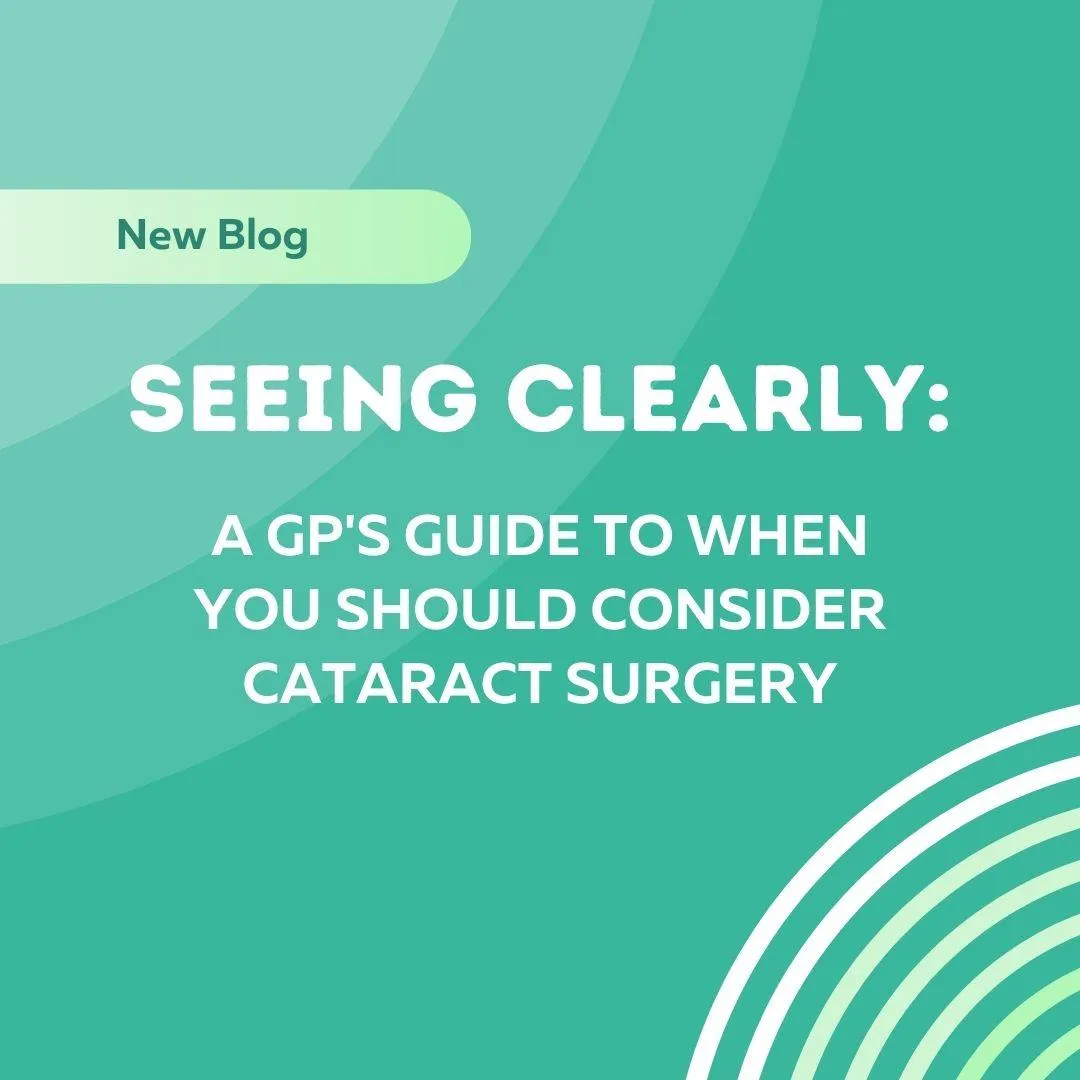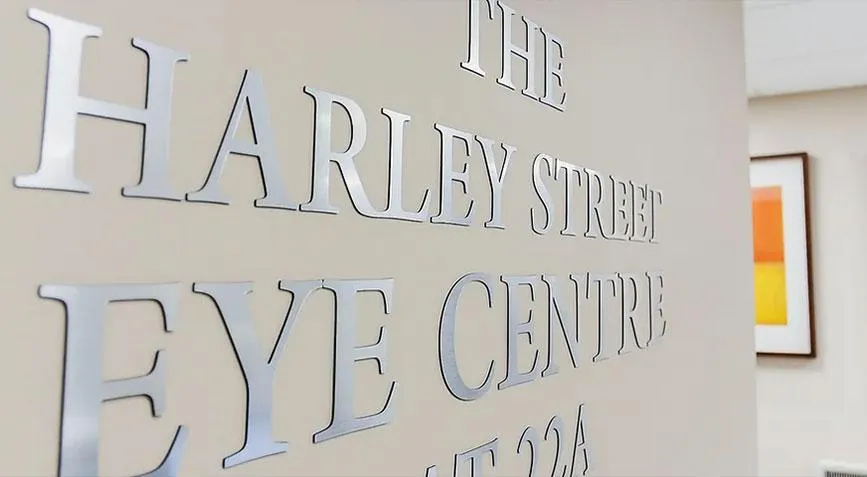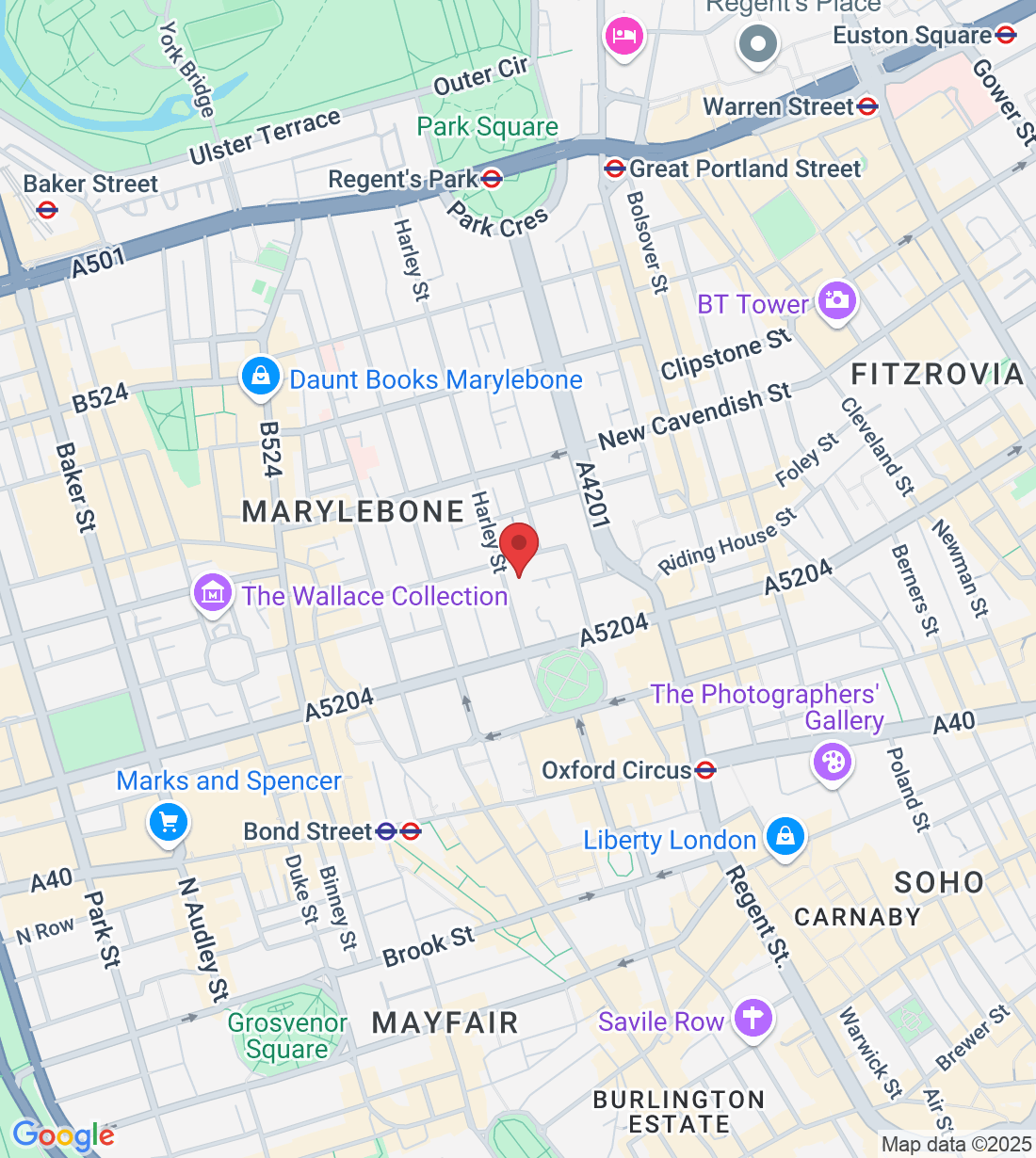
Seeing Clearly: A GP's Guide to When You Should Consider Cataract Surgery
Seeing Clearly: A GP's Guide to When You Should Consider Cataract Surgery
As a general practitioner, I've had the privilege of caring for patients through a wide range of health concerns. Over the years, one issue that frequently arises is cataracts. Cataracts are a common age-related eye condition, and they can significantly impact an individual's vision and daily life. In this article, I'll share insights into when you should consider cataract surgery based on the symptoms and challenges my patients often encounter. Let's embark on a journey through the timeline of cataract development and its effect on everyday activities.
1. Blurred Vision: The Early Warning
Timeline: Blurred vision is often one of the earliest signs of cataract development. Initially, it may be subtle, with patients describing a slight cloudiness in their vision. Over time, this blurriness tends to worsen.
Daily Activities: Patients may notice difficulties with activities like reading, recognizing faces, or watching television. They may require brighter lighting to read comfortably and may start to avoid activities that demand clear vision.
Navigate the unpredictable rationality of cataract surgery and see clearly through the haze. If you're on the path to improved vision, our blog offers guidance.
2. Glare Sensitivity: A Glimpse into the Future
Timeline: As cataracts progress, patients often become more sensitive to glare from lights, especially when driving at night. This sensitivity can become pronounced as the cataract matures.
Daily Activities: Driving can become challenging, particularly during the evening when oncoming headlights cause discomfort. Patients may also find it difficult to drive in rainy or sunny conditions due to glare from the road surface or sunlight.
3. Reduced Color Perception: Fading Vibrancy
Timeline: Cataracts can dull the perception of colors. Patients may notice that colors appear less vibrant and lose their intensity as the cataract matures.
Daily Activities: Tasks that rely on color discrimination, such as cooking or selecting clothing, become more challenging. Patients might struggle to distinguish between colors, leading to difficulties in coordinating outfits or identifying ripe fruits and vegetables.
4. Double Vision: Seeing Double Trouble
Timeline: Double vision or seeing halos around objects can occur in advanced cataract stages when the clouding of the lens becomes more significant.
Daily Activities: Activities that require precise vision, such as threading a needle or pouring liquids, can become problematic. Patients may experience difficulty in focusing on a single image and start seeing double, making tasks like reading or watching TV frustrating.
Celebrate a decade of vision transformation with 'My Journey with Premium Implantable Lenses in Cataract Surgery.' If you're looking for life-changing experiences, our blog has the story.
5. Decreased Night Vision: The Dark Side of Cataracts
Timeline: Cataracts can severely impact night vision, making it progressively harder to see in dimly lit environments.
Daily Activities: Patients may limit their activities after sunset, avoiding nighttime outings or social gatherings. They might become hesitant to drive at night due to poor visibility, which can significantly affect their independence.
6. Frequent Prescription Changes: A Sign of Cataracts
Timeline: Frequent changes in eyeglass prescriptions can be a clear indication of cataract development. Patients may find that their vision deteriorates rapidly, necessitating updated prescriptions.
Daily Activities: Frequent visits to the optometrist for new glasses become part of the routine. Yet, even with new prescriptions, vision difficulties persist as cataracts continue to progress.
7. Decline in Daily Independence: A Turning Point
Timeline: As cataracts advance, patients may reach a turning point where their overall quality of life is compromised.
Daily Activities: Everyday tasks like reading, cooking, driving, and enjoying hobbies become increasingly challenging. Patients may experience frustration and a sense of dependency, which can significantly impact their self-esteem and well-being.
Discover the true value of sight as you navigate the 'Costs and Benefits of Cataract Surgery in the UK.' If you're considering this procedure, our blog provides invaluable insights.
When to Consider Cataract Surgery
The decision to consider cataract surgery should be based on the impact of these symptoms on a patient's daily life. When blurred vision, glare sensitivity, reduced color perception, double vision, decreased night vision, frequent prescription changes, and a decline in daily independence interfere significantly with daily activities and overall well-being, it's time to discuss cataract surgery.
Cataract surgery is a safe and effective procedure that involves the removal of the cloudy natural lens and its replacement with a clear artificial lens. It can restore clear vision, reduce glare sensitivity, improve color perception, eliminate double vision, and enhance night vision. With the right intraocular lens selection, patients can often achieve clear vision for various distances, reducing or eliminating the need for glasses.
The cost of cataract surgery varies, but it's essential to weigh the expenses against the benefits. Consider the long-term savings on eyeglasses, the value of glasses-free vision, and the expertise of your surgeon when making this decision. While cataract surgery is not an urgent procedure, it can significantly improve your quality of life and daily independence.
Understanding the timeline of cataract development and its impact on daily activities is crucial for knowing when to consider cataract surgery. When blurred vision, glare sensitivity, reduced color perception, double vision, decreased night vision, frequent prescription changes, and a decline in daily independence become prominent, it's time to explore cataract surgery as a viable solution. Cataract surgery offers the opportunity to regain clear vision and improve your overall quality of life, making it a valuable investment in your visual health and well-being.
Ask And His Team
Fill in the form to request a Call From Our Team
One of our team will call you for FREE and answer any questions or concerns you may have about your eye health
© Copyright 2023. The Harley Street Eye Centre. All rights reserved.





